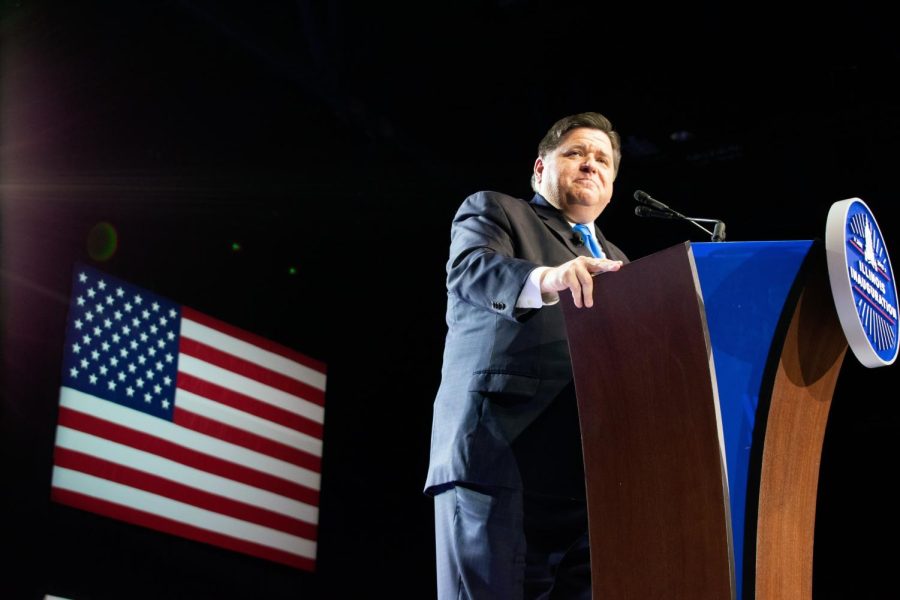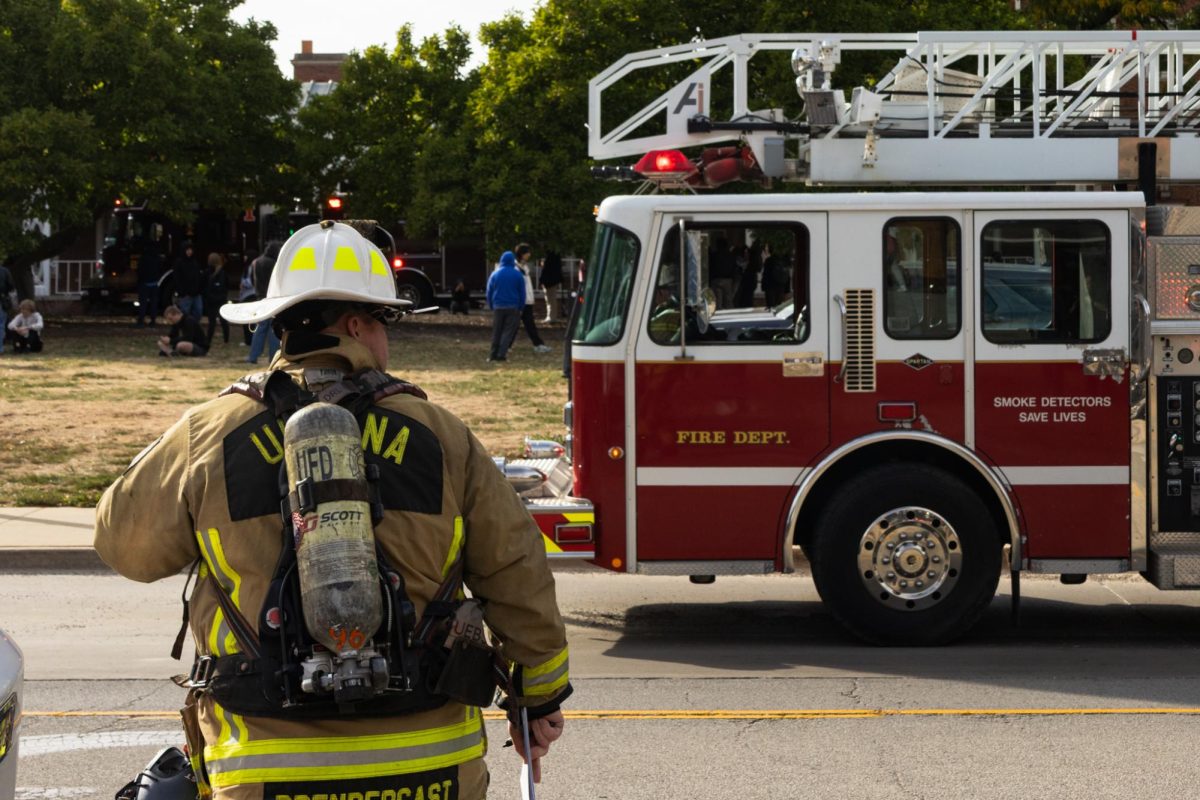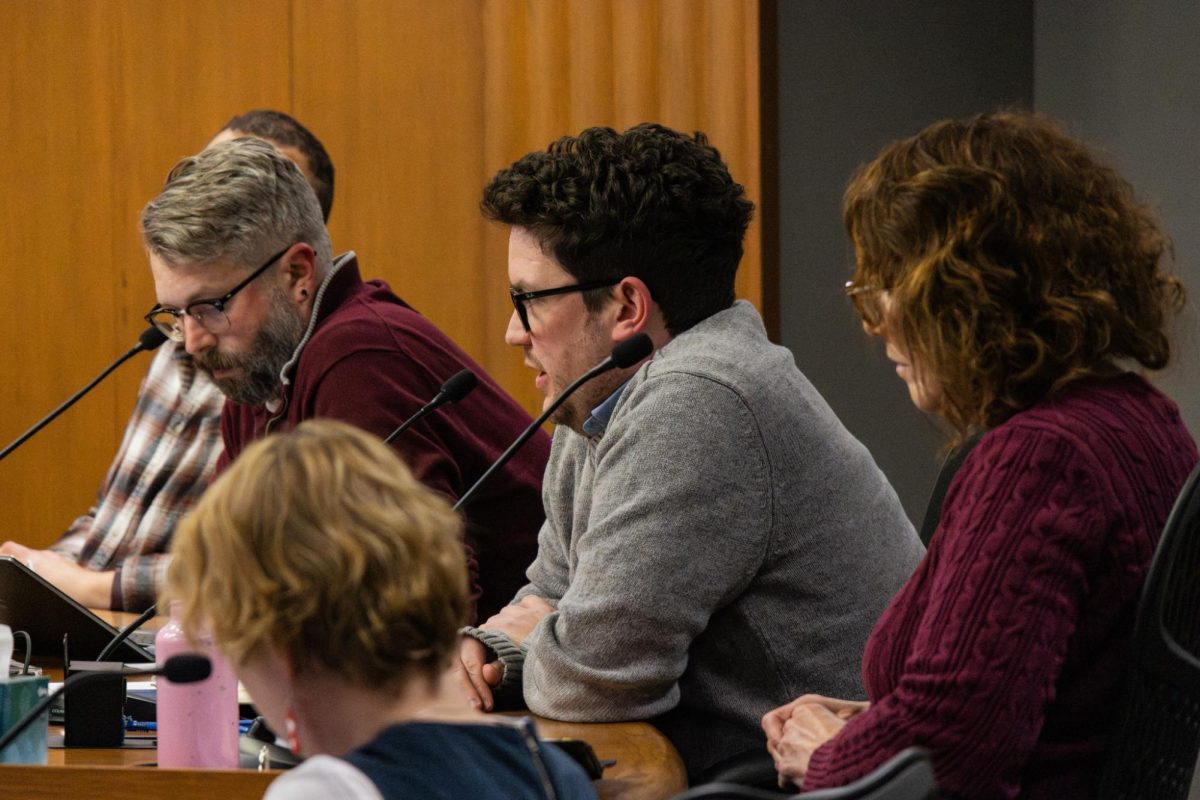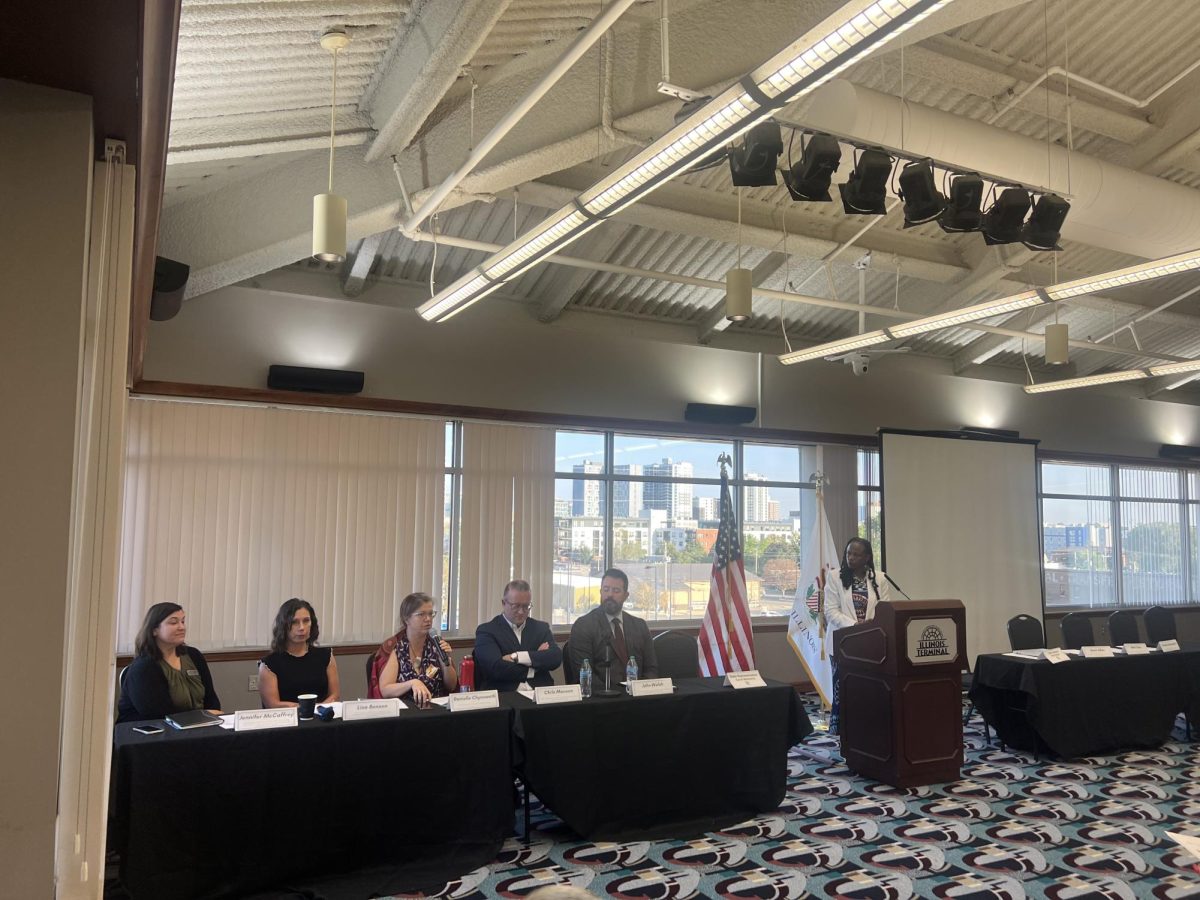The Illinois General Assembly ended its 2024 fall veto session Thursday, Nov. 21, against the backdrop of the 2024 election. The veto session gave Illinois’ legislative branch a chance to overturn gubernatorial vetoes and introduce new legislation.
Donald Trump’s electoral victory was at the forefront of conversation going into the legislative session, given Illinois Gov. JB Pritzker laid out his agenda to resist Trump’s would-be federal policies in a news conference on Nov. 6.
“To anyone who intends to come take away the freedom and opportunity and dignity of Illinoisans, I would remind you that a happy warrior is still a warrior,” Pritzker said. “You come for my people, you come through me.”
Several Illinois representatives have since labeled Pritzker’s statements divisive, including Republican State Representative Brandun Schweizer of Illinois’ 104th District.
“The partisan negative rhetoric Governor Pritzker used during the campaign and since President Trump’s win is divisive and damaging,” Schweizer said in an email statement. “I believe Governor Pritzker should set Illinois up for success, not four years of adversity between our Governor and President.”
Get The Daily Illini in your inbox!
Democratic lawmakers, on the other hand, hope to shore up left-leaning state policies they believe could be in danger from a Trump-run federal government. Earlier this month, a Trump-appointed federal judge overturned the Illinois assault weapons ban.
“We’re gathering … a list of things that we may need to address, maybe not during veto session, but maybe, it can be done in the new year,” Pritzker said. “But suffice to say that we have a lot of work that we’re looking at doing.”
For Democratic Representative Carol Ammons, who represents the 103rd District, which encompasses Champaign-Urbana, the top of that list includes Illinois House Bill 5907. The bill seeks to distribute funds to public universities in the state equitably.
“For too long, college has been an ever-growing expense unfairly placed on students — my bill would change that,” Ammons said in a statement via email. “The state must fund our institutions fairly to save students from high tuition costs.”
Across the aisle, Republicans in the General Assembly criticized the state’s spending, deeming it excessive. Per WJBC, Republican Minority Leader John Curran said the voters of Illinois — in giving Trump 2.4 million votes — sent a clear message that they’re sick of “incompetent governance.”
Illinois is projected to have a $3 billion deficit for the 2026 fiscal year, according to a report prepared by the Illinois Governor’s Office of Management and Budget.
“On behalf of all Illinoisans, regardless of who they voted for, I am calling on Gov. Pritzker to pledge to not increase taxes on Illinois families and businesses in this upcoming budget year,” Curran said. “Illinois has real problems right here that need to be dealt with. It’s time for Gov. Pritzker to take a break from the national campaigns and to start to think Illinois.”
However, a projected deficit is not anything new for Illinois. The report by the GOMB adds the “governor remains committed to address any potential budgetary shortfalls that may arise — as has been done every year since he took office in 2019.”
Ammons mentioned concern for the budget but highlighted a need to support local communities.
“A projected budget shortfall is always a concern,” Ammons said. “I am waiting for the real numbers. I will continue monitoring the situation, and when the budget is proposed, I will make decisions that support our communities.”
Schweizer, who said he voted against the fiscal year 2025 budget due to its tax increases and expanded government spending, echoed a similar sentiment to Curran.
“I am not surprised by the projected shortfall,” Schweizer said. “In years past, Republicans have been shut out of budget meetings, blindsided by a budget made up of thousands of pages spending billions of dollars, and dropped after midnight in the final hours of the Session. I am hopeful for a better process where legislators from every corner of the state are represented.”
As for Schweizer’s legislative goals, in a show of bipartisanship, noted he’s “closely watching” Senate Bill 3968, a bill co-sponsored by Ammons and Democratic Senator Paul Faraci, who represents Illinois’ 52nd District, which encompasses Champaign-Urbana.
“I am closely watching Senate bill 3968, a bill that prohibits carbon sequestration activity in and around the Mahomet Aquifer,” Schweizer said. “This bill is a crucial piece of legislation to protect drinking water for one million central Illinoisans from contamination.”
Although the bill wasn’t passed into law, this veto session lasted more than an hour of debate. Ammons said she plans to advocate for the legislation when the General Assembly returns for a lame-duck session in January.
“I was disappointed that the Senate decided to delay passage of our legislation during veto session, but when the General Assembly returns in January, I won’t stop working until our water is protected,” Ammons said.






